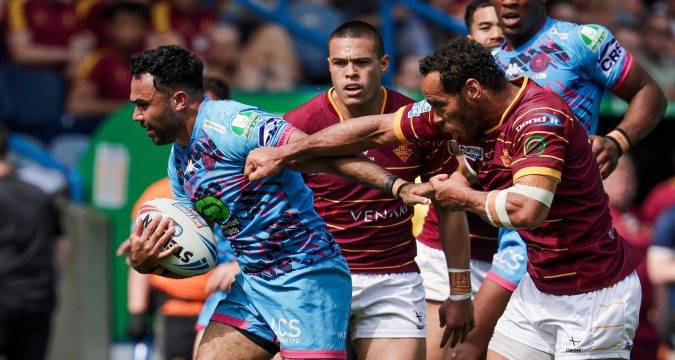 WHY do the clubs on the western side of the Pennines seem to be so much more successful than those on the east?
After eleven rounds of the Super League competition, of the five clubs based in the traditional county of Lancashire, three of them are sitting joint top of the league alongside Catalans Dragons with 16 points.
Salford are two point
WHY do the clubs on the western side of the Pennines seem to be so much more successful than those on the east?
After eleven rounds of the Super League competition, of the five clubs based in the traditional county of Lancashire, three of them are sitting joint top of the league alongside Catalans Dragons with 16 points.
Salford are two point Talking Rugby League: Why are Yorkshire clubs struggling to match Lancashire?
 WHY do the clubs on the western side of the Pennines seem to be so much more successful than those on the east?
After eleven rounds of the Super League competition, of the five clubs based in the traditional county of Lancashire, three of them are sitting joint top of the league alongside Catalans Dragons with 16 points.
Salford are two point
WHY do the clubs on the western side of the Pennines seem to be so much more successful than those on the east?
After eleven rounds of the Super League competition, of the five clubs based in the traditional county of Lancashire, three of them are sitting joint top of the league alongside Catalans Dragons with 16 points.
Salford are two point 